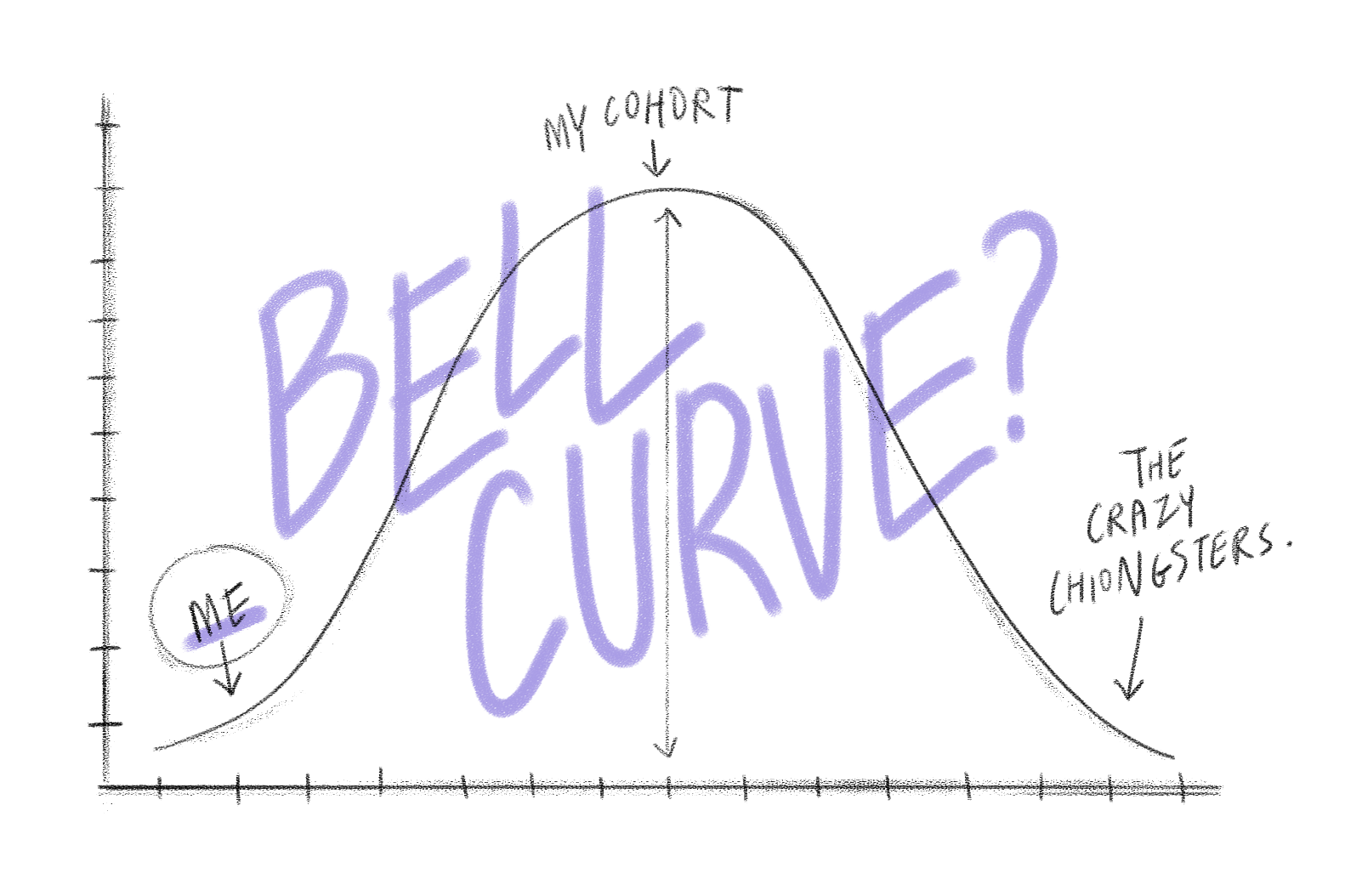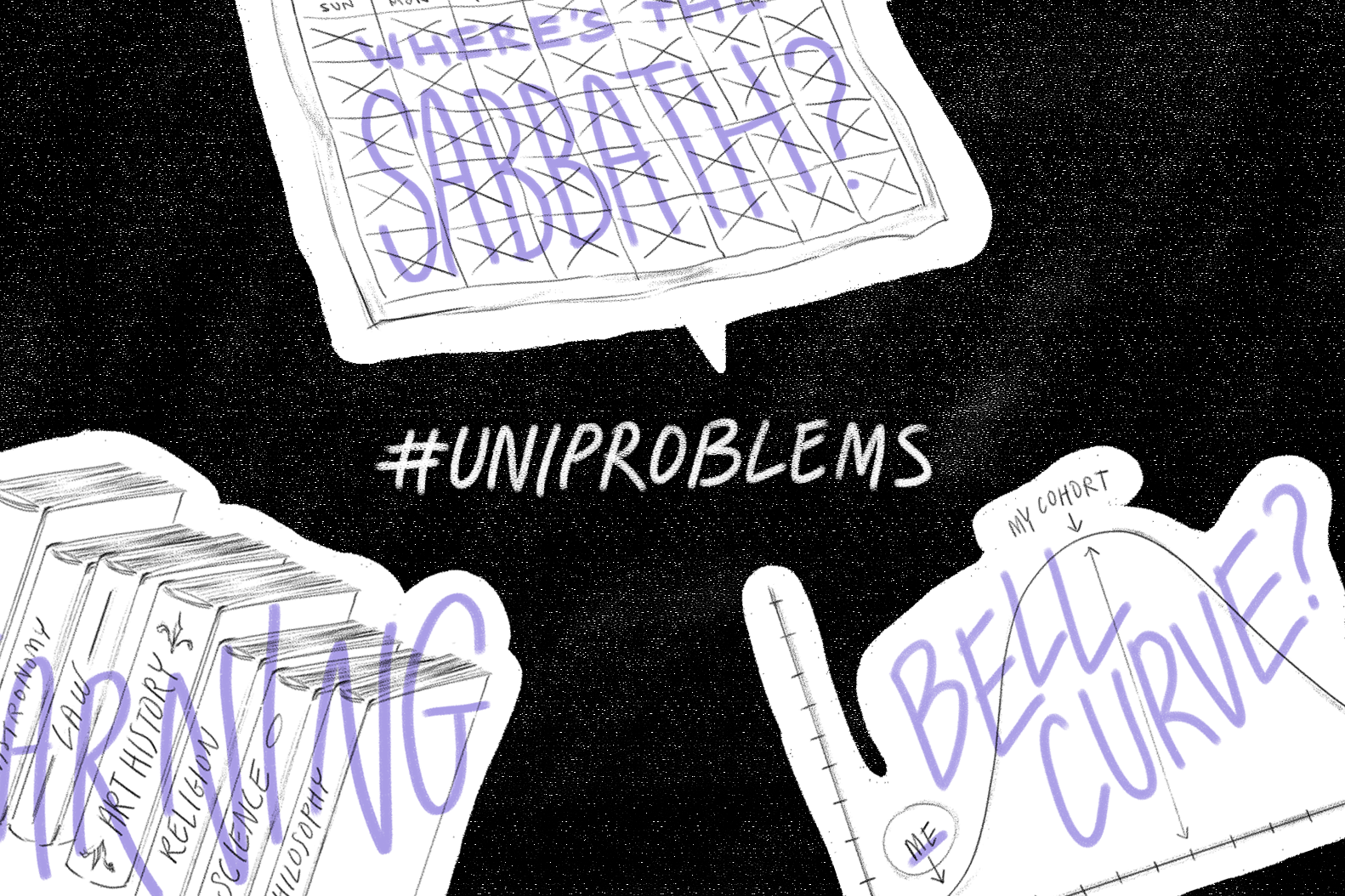As a freshman undergraduate at SMU Lee Kong Chian School of Business, I realise that many of my Christian friends experience a certain tension between their identity as a Christian and their identity as a student.
In university, there is bound to be a certain competitiveness. Many of my Christian friends talk about their struggles with academic validation and keeping “ahead of the curve”, and how their GPA can almost become a point of self-worth.
It is a struggle to balance ministry work and student work, and finding purpose and pleasure in university studies can be much harder than one might think.
In such a competitive environment, what truths can we ground ourselves in? How do we balance everything?
1. Rest in God
God is sovereign over our lives. If God in His sovereignty has placed us in university, then our God-given responsibility is to be a student.
Now, that does not mean becoming robots who devote all their time to studying and trying to achieve perfect grades.
Having that mindset can lead to idolatry where achieving good grades becomes the purpose of our lives, when it should be glorifying God.
On the other hand, it also does not mean we can slack as students! Our responsibility as students means that we put in effort to be excellent and learn as much as we can.
So, how exactly do we achieve this balance?
There is no hard and fast rule to this. Constantly asking God to help us discern between excellence and striving is crucial.
That means constant prayer. Everyone is different, and God has created each person wonderfully and differently.
Not only that, different degrees require different amounts of work. What may be a good balance for me may not be a good balance for you.
Again, consistently asking God for guidance is crucial for achieving this balance. It took me some time for me to find my footing, but I eventually did.
Keeping the Sabbath was what helped me do this and is a practice that all believers must adopt.

“If you keep your feet from breaking the Sabbath and from doing as you please on my holy day, if you call the Sabbath a delight and the Lord’s holy day honorable, and if you honor it by not going your own way and not doing as you please or speaking idle words, then you will find your joy in the Lord, and I will cause you to ride in triumph on the heights of the land and to feast on the inheritance of your father Jacob. For the mouth of the Lord has spoken.” (Isaiah 58:13-14)
Indeed, the Bible shows us that the Sabbath is made for us to rest and not to work.
… the rest I experience on the Sabbath truly rejuvenates my energy and motivation for the following week.
When I first began resting on the Sabbath, I found it quite difficult especially because I had to cram my workload into six days instead of seven.
But as time went on, the Sabbath became a crucial part of my life. I realised that the rest I experience on the Sabbath truly rejuvenates my energy and motivation for the following week.
I realised that God truly knows us best, even down to things like work-life balance. I cannot imagine going back to a Sabbath-less life.
A friend of mine also began to keep the Sabbath midway into university.
Not only did she find the rest that she did not realise she needed, her grades also improved!
Isaiah 58 talks about this in verse 14: not only will you find joy in God, He will also cause you to triumph.
2. Focus on Christ and community, not competition
In SMU, the competition is real. There is a real pressure to “keep up” and “hustle” by throwing yourself into as many CCAs as you can, taking as many classes as possible and getting a good GPA.
When I first entered university, I had never been so humbled in my life. Everyone around me was intimidatingly smart and quick to grasp concepts.
As someone who is a slow learner, I wondered if I would drop out in the first semester (yes, it was that bad).
At first, I felt a great amount of anxiety in knowing that I was a few steps behind the rest.
In the harder classes, I was so lost and did not understand about 70% of what was being taught. This made me feel anxious and fearful.

Facing these challenges, I learned to depend on God to understand what was being taught.
Before each class, I would pray to God for guidance and His help in understanding the classes.
Knowing that He was with me in classes gave me peace, comfort and strength to get through them.
When it comes to the competition, I’ve since learned to not let it affect me. God is sovereign over our lives, and He will open the right doors and close the wrong doors.
Always reminding myself that God is taking care of me and guiding me in every step has helped me to focus on Him instead of comparing with others.
Finding a Christian community in university is also one of the best things you could do.
Finding a Christian community in university is also one of the best things you could do. For me, I found such a spiritual community at SMU Christian Fellowship.
Surrounding myself with passionate Christians who have set their hearts on the things of God and not of the world has made university feel less intimidating and more like home.
It has made setting my eyes on God easier and more natural!
3. Chase learning, not grades
University is a gift that allows us to learn about the complexity of humanity.
I have learned so many things that helped me understand and appreciate the complexity of human development. This is the beauty of education.
For example, when I studied business law, it helped me to see that God has imbued in humans a certain objective logic that would allow us to create laws which are necessary for human flourishing.
When I studied accounting, it helped me to appreciate the brilliance of the human intellect to come up with a system that allows you to calculate all these different money streams in a neat system that accurately accounts for everything.

University education is a window into all these different realms of academia that God has created.
Yes, God is the God of love, He is our saviour and our hope. But God is also the creator of everything else. He is the creator of math, the creator of economics, the creator of law and so on.
Sometimes, we get so wrapped up in how much work we must do, that we miss the beauty of what we’re learning.
When we take a step back, we can see God’s brilliance in His creation. God has made all these fields of knowledge, ranging from the sciences to the arts for His creation to flourish.
Sometimes, we get so wrapped up in how much work we must do that we often miss the beauty of what we’re learning.
In recognising this brilliance, my appreciation towards God’s creation has deepened.
It has opened my eyes to the wonders of His work, helping me to realise that there is so much more in this world to learn and experience, and that these things do reflect God in some way.
How exciting is that!
So, let us recognise how university allows us to experience God in deeper ways.
When we recognise that university is meant to be experienced with God and not in opposition to God, we learn to be much more dependent on Him.
From there, we can begin to see the brilliance of His creation.
- What does the Sabbath mean to you?
- Do you keep it?
- What does the Bible say about the Sabbath?
- How can you begin keeping the Sabbath?









